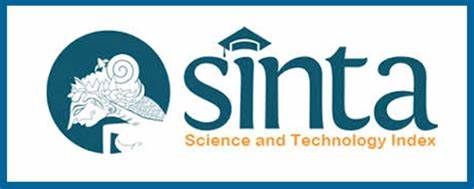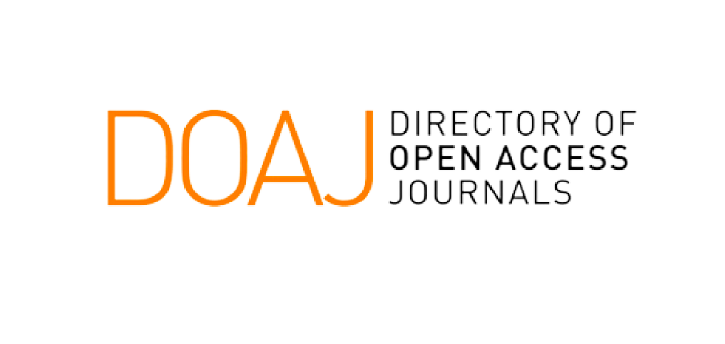PENGUATAN PENDIDIKAN KARAKTER RELIGIUS MAHASISWA MELALUI PROGRAM TUTORIAL KEAGAMAAN
Abstract
Keywords
Full Text:
PDFReferences
Abdullah, I., Hudayana, B., Kutanegara, P. M., & Indiyanto, A. (2019). Beyond school reach: Character education in Three Schools in Yogyakarta, Indonesia. Journal of Educational and Social Research, 9(3), 145.
Al-Qardawi, Y. (1981). Al-Khasais al-‘Ammah lil Islam. Qaherah: Makatabah Wahbah.
Amran, A. (2020). Implementation of education for sustainable development to enhance Indonesian golden generation character. Journal of Physics: Conference Series, 1521(4), 1-5.
Aningsih. (2022). How is the Education Character Implemented? The Case Study in Indonesian Elementary School. Journal of Educational and Social Research, 12(1), 371-380.
Ashraf, S. A. (1988). The westhill project RE 5–16: Islam: Teacher’s manual. London: Mary Glasgow.
Azzahrah, A. A., & Dewi, D. A. (2021). Toleransi Pada Warga Negara Di Indonesia Berlandaskan Sila Ketuhanan Yang Maha Esa. De Cive: Jurnal Penelitian Pendidikan Pancasila dan Kewarganegaraan, 1(6), 173-178.
Fakhruddin, A. (2012). Manajemen Ekstrakurikuler Keagamaan di Sekolah. Jurnal. pdf.
Fakhruddin, A. (2014). Urgensi pendidikan nilai untuk memecahkan problematika nilai dalam konteks pendidikan persekolahan. Jurnal Pendidikan Agama Islam-Ta'lim, 12(1), 79.
Fakhruddin, A. (2014). Urgensi pendidikan nilai untuk memecahkan problematika nilai dalam konteks pendidikan persekolahan. Taklim: Jurnal Pendidikan Agama Islam, 79-96. Retrieved from http://jurnal.upi.edu/taklim/view/2915/urgensi-pendidikan-nilai-untuk-memecahkan-problematika-nilai-dalam-konteks-pendidikan-persekolahan.html
Farhani, D. (2019). Manajemen Pendidikan Karakter Melalui Kegiatan Kokurikuler Keagamaan. Jurnal Isema: Islamic Educational Management, 4(2), 209-220.
Halstead, J. (2007). Islamic values: A distinctive framework for moral education? Journal of Moral Education, 36(3), 283-296.
Hanifa, A., Aulya, C. N., Wisesa, N. S., Faturrohman, R., & Hadiansyah, S. (2023). Survei Kepuasan Peserta Program Tutorial Terhadap Program Tutorial PAI UPI. EDUCATION: Scientific Journal of Education, 1(2), 133-144.
Hanik, U., Wulan, N., & Mutmainah, M. (2018). APERSEPSI DALAM PEMBELAJARAN KAITANNYA DENGAN KESIAPAN DAN HASIL BELAJAR. Edu Math Journal Prodi Pendidikan Matematika, 6(2), 53-59.
Hayati, U. (2017). Nilai-Nilai Dakwah; Aktivitas Ibadah Dan Perilaku Sosial. INJECT (Interdisciplinary Journal of Communication), 2(2), 175-192.
Herijanto, H. (2022). Al amanah in al qur’an vs trust: a comparative study. International Journal of Ethics and Systems, 38(4), 549-575.
Ilmi, D. (2015). Pendidikan karakter berbasis nilai-nilai kearifan lokal melalui ungkapan bijak Minangkabau. ISLAM REALITAS: Journal of Islamic & Social Studies, 1(1), 45-54.
Jamaluddin, A. (2022). Exploration of the Indonesian Makassar-Buginese Siri’ educational values: The foundation of character education. International Journal of Evaluation and Research in Education, 11(1), 10-19.
Khan, M. (1987). Humanism and Islamic Education. Muslim Education Quarterly, 4(3), 25-35.
Lickona, T. (1996). Eleven Principles of Effective Character Education. Journal of Moral Education, 25(1), 93-100.
Marzuki, I., & Hakim, L. (2019). Strategi Pembelajaran Karakter Kerja Keras. Rausyan Fikr: Jurnal Pemikiran dan Pencerahan, 15(1).
Marzuki, M., & Hapsari, L. (2015). Pembentukan Karakter Siswa melalui Kegiatan Kepramukaan di MAN 1 Yogyakarta. Jurnal Pendidikan Karakter, 6(2), 142-156.
Muhammad, A., ul-Qayyum, Z., Tanveer, S., Martinez-Enriquez, A., & Syed, A. Z. (2012). E-hafiz: Intelligent system to help Muslims in recitation and memorization of Quran. Life Science Journal, 9(1), 534-541.
Mulyana, R. (2011). Mengartikulasikan pendidikan nilai. Bandung: Alfabeta.
Nasier, G. (2018). The Effect of Interest In Al-Quran And Arabic Language Ability Towards The Achievement of Tahfizh Al-Qur’an. Al-Hayat: Journal of Islamic Education, 2(2), 240-254.
Puteri, L. (2018). The Apperception Approach for Stimulating Student Learning Motivation. International Journal of Education, Training and Learning, 2(1), 7-12.
Rabiah, S. (2019). Character Education through Indonesian Language Course on Higher Education. Journal of Physics: Conference Series, 1339(1).
Rachmadtullah, R., Yustitia, V., Setiawan, B., Fanny, A., Pramulia, P., Susiloningsih, W., . . . Ardhian, T. (2020). The challenge of elementary school teachers to encounter superior generation in the 4.0 industrial revolution: Study literature. International Journal of Scientific & Technology Research, 9(4), 1879-1882.
Saidek, A. R., & Islami, R. (2016). Character Issues: Reality Character Problems and Solutions through Education in Indonesia. Journal of Education and Practice, 7(17), 158-165.
Santoso, T. (2020). Character Education Values in Revised Edition of the Indonesian Language Learning Curriculum for Year 10. Universal Journal of Educational Research, 8(2), 417-424.
Shihab, M. Q. (1994). Membumikan al-Qur'an: Fungsi dan Peran Wahyu dalam Kehidupan Masyarakat. Mizan.
Shilviana, K., & Hamami, T. (2020). Pengembangan Kegiatan Kokurikuler dan Ekstrakurikuler. Palapa, 8(1), 159-177.
Sholihah, A. M., & Maulida, W. Z. (2020). Pendidikan Islam sebagai Fondasi Pendidikan Karakter. QALAMUNA: Jurnal Pendidikan, Sosial, dan Agama, 12(1), 49-58.
Slamet, S. (2019). Active Learning in Scientific Writing Skill Using Indonesian Textbook Based on Character Education. Journal of Physics: Conference Series, 1339(1).
Susilawati, S., Aprilianti, D., & Asbari, M. (2022). The Role of Islamic Religious Education in Forming the Religious Character of Students. Journal of Information Systems and Management (JISMA), 1(1), 1-5.
Sutton, J. (2015). Qualitative research: Data collection, analysis, and management. Canadian Journal of Hospital Pharmacy, 68(3), 226-231.
Syihabuddin. (2022). Masjid, Pendidikan, dan Peradaban. Bandung: CV. Jendela Hasanah.
Wittwer, J. (2010). Can Tutors Be Supported in Giving Effective Explanations? Journal of Educational Psychology, 102(1), 74-89.
Yunus, M. (1990). Metodik Khusus Pendidikan Agama. Hida Karya Agung.
DOI: https://doi.org/10.21776/ub.waskita.2023.007.02.3
Refbacks
- There are currently no refbacks.
Copyright (c) 2023 Ega Nasrudin, Agus Fakhruddin

This work is licensed under a Creative Commons Attribution 4.0 International License.









